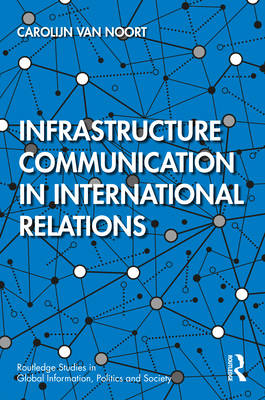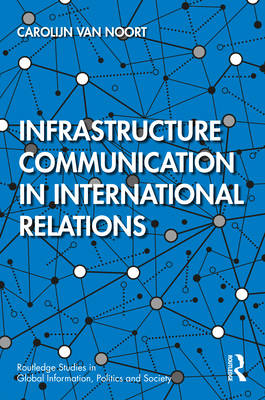
- Afhalen na 1 uur in een winkel met voorraad
- Gratis thuislevering in België vanaf € 30
- Ruim aanbod met 7 miljoen producten
- Afhalen na 1 uur in een winkel met voorraad
- Gratis thuislevering in België vanaf € 30
- Ruim aanbod met 7 miljoen producten
Infrastructure Communication in International Relations
Carolijn Van NoortOmschrijving
This book demonstrates how infrastructure projects and the communications thereof are strategized by rising powers to envision progress, to enhance the actor's international identity, and to substantiate and leverage the actor's vision of international order. While the physical aspects of infrastructure are important, infrastructure communication in international relations demands more scholarly attention.
Using a case-study approach, Carolijn van Noort examines how rising powers communicate about infrastructure internationally and discusses the significance of these communication practices. The four case studies include BRICS's summit communications about infrastructure, Brazil's infrastructure promises to Africa, China's communication of the Belt and Road Initiative in East Africa, and Kazakhstan's news media coverage of China's Belt and Road Initiative. Van Noort highlights the fact that the link between infrastructure, identity, and order-making is arbitrary and thus contested in practice, with rising powers operationalizing infrastructure communication in international relations in varied ways. She argues that both communication organization and the visuality of strategic narratives on infrastructure influence the international communication of infrastructure vision and action plans, with different levels of success.
Infrastructure Communication in International Relations is a welcome and timely book of interest to students and scholars in the fields of international relations, global communications, and the politics of infrastructure.
Specificaties
Betrokkenen
- Auteur(s):
- Uitgeverij:
Inhoud
- Aantal bladzijden:
- 154
- Taal:
- Engels
- Reeks:
Eigenschappen
- Productcode (EAN):
- 9780367557362
- Verschijningsdatum:
- 9/11/2020
- Uitvoering:
- Hardcover
- Formaat:
- Genaaid
- Afmetingen:
- 157 mm x 239 mm
- Gewicht:
- 453 g

Alleen bij Standaard Boekhandel
Beoordelingen
We publiceren alleen reviews die voldoen aan de voorwaarden voor reviews. Bekijk onze voorwaarden voor reviews.









